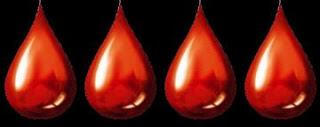Director: Ben Wheatley
Notable Cast: Joel Fry, Ellora Torchia, Reece Shearsmith,
Hayley Squires
One of the fascinating things about bold and auteur-focused
voices in cinema are that audiences will ebb and flow with their projects. Ben
Wheatley, despite bursting from the gates with a handful of positively regarded
slabs of artistic genre fair, including the altogether incredible Kill List,
has seen his clout come and go with how his audience is able to digest his
films in the ways he challenges them. With his latest effort, In the Earth,
Wheatley aims to jam in a solid indie and artsy horror flick in between much
larger profile projects (Rebecca and The Meg 2, respectively), and
the results are as strange and off-kilter as one might expect. Slathered in a
naturalism meets acid trip sensibility, where the former eventually succumbs to
the latter, In the Earth is a film where the experience directly feeds
into its messaging and the execution between the two is experimentation in
challenging its viewers to hold their own on the ride. People wanted artsy genre
work after everyone bitched about Free Fire? You fuckin’ got it.
When a scientist (Hayley Squires) stops communicating with
the outside world after she sets up camp in a remote forest, her colleague
(Joel Fry) partners up with a ranger (Ellora Torchia) to head deep into the
woods to check on her and her progress. However, her research may have created
a perfect scenario to turn the forest from a serene scene into a nightmare
scenario.
There is a fascinating approach to In the Earth by
director/writer/editor/producer/trombone player (maybe) Wheatley in that he
shifts the entire tone and intention of the film three times. The opening
establishes a dramatic mystery tone, pulling elements of the pandemic into this
slow-burn establishing act that essentially builds one a variety of vague
questions. Missing people sought by characters that refuse to give a lot of
character backstory and the narrative quickly shoves its leads into the woods
to isolate them. By the second act, the tone turns fully horror, delivering a
villain, brutal gore, and it further tightens the suspension into sheer terror.
Then, in a true magician’s act, the third act takes the two completely
different previous sections and combines them into a pure psychological
thriller with psychedelic elements.
Sounds confusing? It can be.
I’d be lying if I didn’t make that claim. During my viewing
of In the Earth, I was actively at war with what the film was feeding me.
At one point in the second act, during a slasher-inspired chase sequence, I was
ready to call the film Wheatley’s worst effort. It felt disjointed and often at
odds with itself, let alone the expectations of its audience. As the third act
rolled into its finale though, Wheatley does what he usually does - pulls it
together and hammers it home. The results are a trippy head rush of abrasive
and aggressive audio and visual bursts caked in psychological themes. This is
not a film where its script, dialogue, and plotting make a lot of sense on a
surface level, but like its title - most of the buried material lingers and
digs into its audience on an emotional and conceptual level after the plot has
ceased to make sense.
To balance all of that out, In the Earth is
incredibly well done in terms of execution of the singular elements. The
performances are both melodramatic and nuanced, the cinematography is
gorgeously earthy and natural at first, only to give way into the more
psychedelic choices of its latter half, and its final choices - bold as they
are - leave a perpetual question mark on the entire cinematic experience. The
horror is horrifying, particularly in some of the body destruction that happens
in the second act, and when the film succumbs to its own strange and vague cult
meets naturalist tendencies – it just saunters off into an audio and visual cacophony.
A more traditional horror audience may reject so many of the
oddities that In the Earth presents in its runtime, but for those
willing to embrace the combative choices, in narrative and in the style that
Wheatley utilizes, there is a lot of love. It just takes a bit of digging
and sifting through the soil to find the roots of its choices.



No comments:
Post a Comment